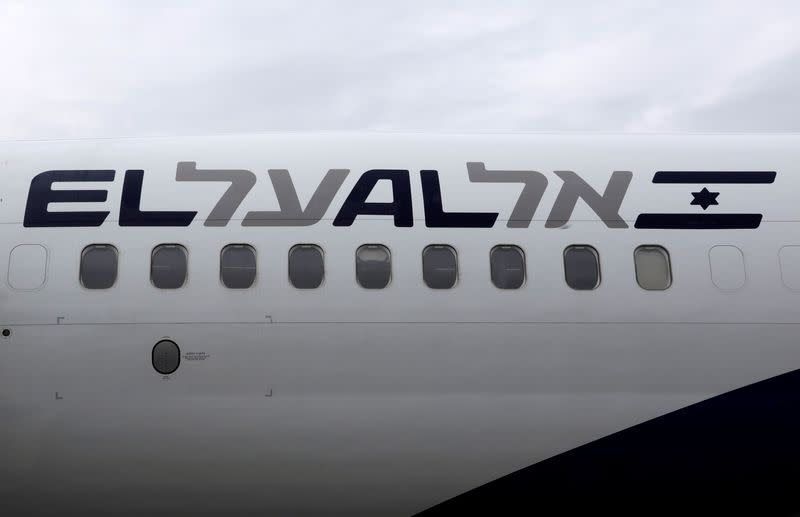
By Steven Scheer
JERUSALEM (Reuters) -Permission for El Al Israel Airlines to fly over Oman is expected in “a matter of days”, chief executive Dina Ben-Tal said on Thursday, a move that would be a big boost for the flag carrier’s Asian routes.
Ben-Tal, speaking to reporters after El Al issued second-quarter results, said the airline had already received approval to fly over Saudi Arabia but also needed to fly over Oman to skirt Iran and save time for journeys to Asia.
Last month, Saudi Arabia said it would open its airspace to all air carriers. El Al and smaller Israeli rival Arkia later said they had applied for permission to fly over both Saudi Arabia and Oman.
Opening Saudi airspace to flights to and from Israel was a focus of U.S. President Joe Biden’s tour last month of the countries, which do not have formal ties.
“It’s not just Saudi Arabia. We need the full route to be approved,” Ben-Tal said.
Once fully approved, it would cut about 2-1/2 hours from flights to India and Thailand and save fuel costs. Present routes to those popular destinations bypass Saudi airspace by flying south over the Red Sea around Yemen.
“We are planning to reschedule our network around that new (shorter) route,” Ben-Tal said, adding El Al was also looking into new non-stop routes to destinations such as Australia. “It definitely will have a huge efficiency (benefit) around our network.”
Saudi Arabia allows Israeli carriers to overfly its territory on flights to and from the United Arab Emirates and Bahrain after the two Gulf states established ties with Israel in 2020.
El Al showed a strong improvement in the second quarter after it was hit hard in earlier periods by the coronavirus pandemic that largely closed Israel’s borders to foreigners. Its shares fell 1% in Tel Aviv.
It said it had earned net profit of $100 million in April-June, versus a loss of $81 million a year earlier. Excluding a large one-time gain from the sale of its frequent flier club, El Al recorded a $15 million net loss on a jump in fuel costs.
Revenue rose to $516 million from $223 million a year before, although that was still below $584 million in the second quarter of 2019, before the COVID-19 crisis began. Load factor, a measure of seats filled, rose to 81.5% from 67% last year.
To meet demand on long-haul routes, El Al said it planned to add a 16th Boeing 787 in 2023 while it also began to restore older Boeing 777s to the skies.
(Reporting by Steven Scheer Editing by Bradley Perrett and Mark Potter)




